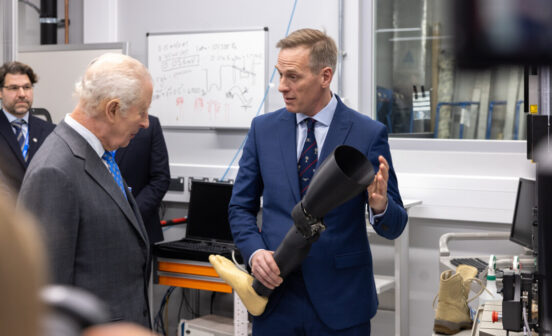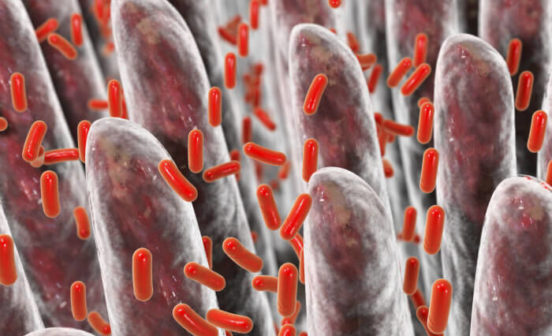EventPartnership New Imperial network will unite and nurture microbiome research

The Microbiome@Imperial Network was launched on 9th May 2019 at Imperial College London, following a successful bid led by Professor Marc-Emmanuel Dumas, with Dr Thomas Bell, Dr Michael Cox, Professor Julian Marchesi and Professor Miriam Moffatt. The Network will bring together a critical mass of researchers across Faculties in a strategic effort to share knowledge, foster collaborations and educate the next generation of microbiome scientists, while capitalising on the wealth of specialised technology available at Imperial.
Our understanding of the interaction between microorganisms and a human host, and its clinical importance, is still very limited. However, microbiome research is one of Imperial’s pronounced strengths, and it underpins several NIHR Imperial BRC Themes, particularly Gut Health – a new BRC Theme within which Profs Dumas and Marchesi are researchers. Yet it is not limited to Gut Health, and we estimate that ~4% of the overall BRC research portfolio incorporates an element of microbiome research, and spans seven of our Themes, and beyond. Microbiome@Imperial Network aims to bring all this diverse expertise together, enabling accelerated and efficient collaborative research.
The official launch event was held at 170 Queen’s Gate, attracting researchers from all Imperial College Faculties. It was opened by Prof Dumas, who gave an overview of the extent and excellence of microbiome research at Imperial College, and what the Network has set out to achieve. Prof Nick Jennings, Vice-Provost for Research and Enterprise, echoed the importance of microbiome research and provided an insight into Imperial Networks of Excellence, which aim to nurture multidisciplinary connections across Faculties, united by a common research interest. Dr Paul Craven, NIHR Imperial BRC Manager and Head of Research Operations, introduced BRC-supported activities and infrastructure that researchers can avail of; and Prof Julian Marchesi concluded the first session with a keynote on the growing interest and importance of microbiome research, giving several examples from his lab that resulted in patient benefit. Second session of the day involved two more talks from microbiome researchers, focus groups and a concluding SWOT analysis of the Network, to ensure its success.
Find out more about the network here, and about microbiome research in the NIHR Imperial BRC here.
Photos and graphics subject to third party copyright used with permission or © Imperial College London.





